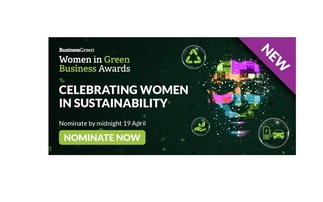How will can business contribute to the drive to 'ensure availability and sustainable management of water and sanitation for all'?
Targets
6.1 By 2030, achieve universal and equitable access to safe and affordable drinking water for all.
6.2 By 2030, achieve access to adequate and equitable sanitation and hygiene for all and end open defecation, paying special attention to the needs of women and girls and those in vulnerable situations.
6.3 By 2030, improve water quality by reducing pollution, eliminating dumping and minimizing release of hazardous chemicals and materials, halving the proportion of untreated wastewater and substantially increasing recycling and safe reuse globally.
6.4 By 2030, substantially increase water-use efficiency across all sectors and ensure sustainable withdrawals and supply of freshwater to address water scarcity and substantially reduce the number of people suffering from water scarcity.
6.5 By 2030, implement integrated water resources management at all levels, including through transboundary cooperation as appropriate.
6.6 By 2020, protect and restore water-related ecosystems, including mountains, forests, wetlands, rivers, aquifers and lakes.
6.A By 2030, expand international cooperation and capacity-building support to developing countries in water- and sanitation-related activities and programmes, including water harvesting, desalination, water efficiency, wastewater treatment, recycling and reuse technologies.
6.B Support and strengthen the participation of local communities in improving water and sanitation management.
Progress to date
SDG6 establishes the template for all the infrastructure focused SDGs, highlighting how considerable progress has been made since the turn of the century, while still raising the alarm over the many millions of people who still lack access to basic services.
For example, the proportion of people globally who are forced to still undertake the practice of open defecation has fallen from 20 per cent in 2000 to 12 per cent in 2005. But that still leaves 892 million people without any access to sanitation of any sort, while 2.3 billion people lack access to a basic sanitation service - defined as an improved facility that is not shared.
Similarly, as of 2015 5.2 billion people had access to safely managed drinking water on site, but that still left 1.3 billion people travelling up to 30 minutes to access an improved water source and a further 844 million people without access to even basic water services.
Inevitably, those without access to water and sanitation services are concentrated in those rural areas where the costs of providing water infrastructure are highest. "Achieving universal access to basic sanitation and ending the unsafe practice of open defecation will require substantial acceleration of progress in rural areas of Central and Southern Asia, Eastern and South-Eastern Asia and sub-Saharan Africa," the UN warns.
Somewhat bizarrely SDG6 does not directly reference the significant risks the water sector faces from projected climate impacts, but it does highlight how progress is urgently needed to improve water management and tackle water stress.
For example, the most recent SDG progress report cites a survey that found 22 countries, mainly located in Africa and Asia, are experiencing a ratio of fresh water withdrawn to total renewable freshwater resources above 70 per cent, which according to the UN "indicates strong probability of future water scarcity".
"In 15 of these countries, withdrawals totaled more than 100 per cent of the renewable freshwater resources in the country," the report added.
At the same time, across 157 countries surveyed in the past year the average implementation rate for integrated water resources management stood at just 48 per cent. And for 62 countries sharing cross border water resources only 17 reported that agreements were in place to co-operate on water management across all their transboundary basins.
Overseas Development Aid for the water sector has increased steadily to $9bn in 2016, but despite water's central role in meeting other health and development goal its share of overall aid spending has remained flat at five per cent for the past decade.
Business implications
The central role of the private sector in providing water infrastructure and/or services in many countries means SDG6 was always going to have an impact on businesses. However, the inclusion of sustainable water management and water stress in the goal means its reach is expanded to cover all businesses worldwide.
No business can operate without water, while all supply chains across all industries are threatened by water stress and related risks.
Targets 6.3 and 6.4, which incorporate pledges to reduce water pollution and "substantially increase water efficiency" by 2030, point to new regulations and standards in multiple jurisdictions.
Meanwhile, target 6.5's commitment to implement integrated water resources management at all levels suggests water intensive industries can expect to face more pressure from governments to work with authorities and other stakeholders to tackle water risks.
As such, SDG6 is a goal that all businesses have to engage with in some way, whether they are at direct risk of water-related impacts or not.
Business Risks
SDG6 is one of the keystone SDGs underpinning much of the anticipated progress on health and wider economic development. As such a failure to meet it risks undermining growth in many developing and emerging markets. More worrying still, security experts remain fearful that the 'water wars' could become a genuine threat to international stability as climate impacts worsen and countries clash over scarce water resources.
The SDG may not mention climate resilience specifically, but scientists have been clear that flooding and droughts are two of the most severe threats associated with escalating climate risks. As such a failure to get a grip on the targets covering water efficiency, sustainable basin management, and water-related ecosystem services could lead to significant disruption for global supply chains, with agriculture and manufacturing at particular risk.
High profile stories of factories at loggerheads with the communities in which they are located over falling water tables have already emerged, but they risk becoming an increasingly common occurrence.
More specifically, the promise of action to tackle water pollution and improve water efficiency is likely to lead to new regulations in many markets, which could see businesses that are slow to respond left at risk of fines and/or reputational damage.
Business opportunities
Many leading businesses are already taking action to tackle water-related issues. A host of manufacturing and food companies have recognised the threat water stress could pose to their operations, cost base, and licence to operate, and as such are investing in water efficiency measures and even full water basin management strategies that involve the reforestation and management of upland areas.
For businesses, the benefits of such programmes are obvious as they tend to reduce costs and risk profiles, while also delivering reputational gains and biodiversity improvements.
SDG6 also promises significant business opportunities beyond the economic growth and productivity gains universal access to safe water and sanitation should unlock.
The water sector has not been known for its innovation in recent decades, but the pledges to cut water pollution, improve water efficiency, and specifically back capacity building programmes in developing countries, "including water harvesting, desalination, water efficiency, wastewater treatment, recycling and reuse technologies" should all open up new market opportunities.









